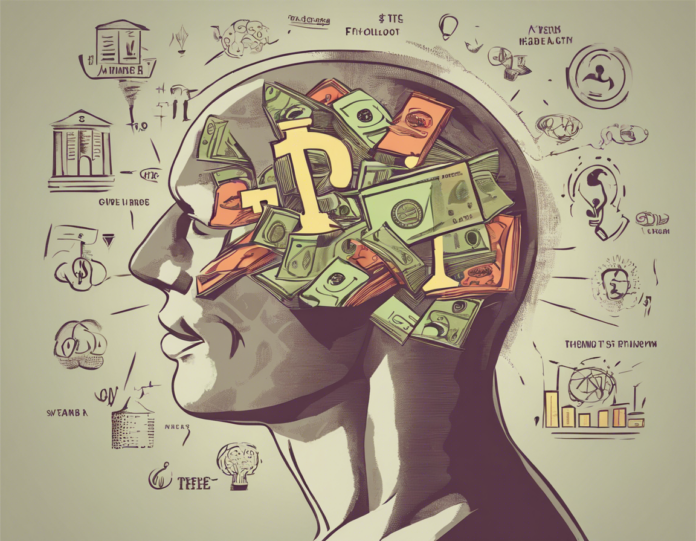Money has long been a fascinating and often contentious topic in our society, with people holding a wide range of beliefs and attitudes towards it. From the way we earn and spend to our views on wealth and success, our money mindset plays a crucial role in shaping our financial habits and outcomes.
The Power of Money Mindset
Our money mindset refers to the underlying beliefs, attitudes, and feelings we have about money. These deeply ingrained thought patterns can greatly influence our financial decisions and behaviors. Whether we realize it or not, our money mindset can impact how we earn, spend, save, and invest our money.
The Scarcity vs. Abundance Mindset
One of the most fundamental aspects of our money mindset is whether we operate from a scarcity mindset or an abundance mindset. Individuals with a scarcity mindset tend to view money as limited and finite, leading to feelings of fear, anxiety, and a constant need to hoard resources. On the other hand, those with an abundance mindset see money as plentiful and believe in their ability to attract wealth and opportunities.
The Influence of Childhood Experiences
Our money mindset is often shaped by our early experiences with money. Messages we received from parents, caregivers, and society at large can have a profound impact on our beliefs about money. For example, growing up in a household where money was a source of tension or scarcity can lead to a scarcity mindset in adulthood.
Overcoming Limiting Beliefs
Recognizing and challenging our money mindset is the first step towards achieving financial well-being. By identifying and reframing our limiting beliefs about money, we can open ourselves up to new possibilities and opportunities for growth.
Strategies for Shifting Your Money Mindset
- Practice Gratitude: Cultivating a sense of gratitude for what you have can help shift your focus from scarcity to abundance.
- Challenge Negative Beliefs: Explore the origins of your money beliefs and challenge any thoughts that no longer serve you.
- Surround Yourself with Positivity: Seek out sources of inspiration and positivity about money to reinforce an abundance mindset.
The Psychology of Spending
Our money mindset also influences how we approach spending. Understanding the psychological factors that drive our spending habits can help us make more conscious and intentional decisions with our money.
Emotional Spending
Emotions play a significant role in our spending behavior. From retail therapy to impulse purchases, our emotions can lead us to make financial decisions that may not align with our long-term goals.
Social Influences
Our money mindset is also shaped by social influences, such as peer pressure and societal norms. The fear of missing out (FOMO) or the desire to keep up with the Joneses can lead us to overspend and negatively impact our financial well-being.
Building a Healthy Relationship with Money
Achieving financial wellness requires more than just budgeting and saving. It entails developing a healthy relationship with money that is rooted in self-awareness, intentionality, and a positive money mindset.
The Importance of Financial Education
Investing in financial education and literacy is essential for empowering individuals to make informed decisions about their money. By understanding basic financial concepts and principles, individuals can take control of their financial future.
Cultivating Self-Worth Independent of Wealth
True financial well-being extends beyond the numbers in your bank account. It involves recognizing your inherent value and self-worth independent of your financial status. By cultivating self-compassion and prioritizing holistic well-being, you can build a healthier relationship with money.
Frequently Asked Questions (FAQs)
1. How can I identify my money mindset?
You can identify your money mindset by reflecting on your beliefs, attitudes, and behaviors towards money. Pay attention to your thoughts about wealth, success, and abundance to gain insight into your money mindset.
2. Can our money mindset change over time?
Yes, our money mindset is not fixed and can evolve with self-awareness and intentional effort. By challenging and reshaping our limiting beliefs about money, we can adopt a more positive and empowering money mindset.
3. How does our childhood upbringing impact our money mindset?
Our childhood experiences with money can significantly influence our money mindset in adulthood. Messages we received about money from our parents and caregivers can shape our beliefs about wealth, success, and abundance.
4. What are some practical steps for improving my money mindset?
Practical steps for improving your money mindset include practicing gratitude, challenging negative beliefs, and surrounding yourself with positivity about money. Engaging in mindset-shifting activities and seeking out financial education can also be beneficial.
5. How can I develop a healthier relationship with money?
To develop a healthier relationship with money, prioritize financial education, cultivate self-worth independent of wealth, and practice conscious spending habits. By aligning your values with your financial goals, you can build a more sustainable and fulfilling relationship with money.
In conclusion, our money mindset plays a significant role in shaping our financial behaviors and outcomes. By cultivating a positive and empowering money mindset, we can transform our relationship with money and pave the way towards greater financial well-being and fulfillment.
